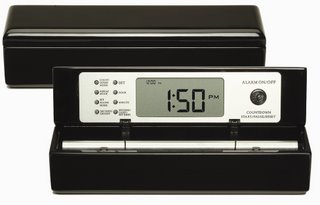
Insomnia Suggestions
You’ve tried it all—chamomile tea, hot baths, aromatherapy, melatonin—and nothing works. Your insomnia obviously calls for something a little stronger than a glass of warm milk. In fact, you need something that packs a bit more punch, but you don’t want to resort to sleep medications. Good news: Sleep researcher Roger Cole, PhD, from Del Mar, California, recommends two powerful, natural sleep therapies that have helped many insomniacs drift off peacefully to dreamland.
Resetting your body clock
If you have difficulty falling asleep at night and waking up in the morning, try dawn/dusk simulation, a form of sleep therapy that resets your body clock. Your body uses natural signals, including sunlight and darkness, to trigger hormones that make you active in the morning and sleepy at night. Bright light, particularly morning sunlight, provides the strongest signal the body uses to regulate this hormonal cycle, called your circadian rhythm. So if you typically awaken before sunrise or work in artificially lit environments, your circadian rhythm may have gotten out of sync. Using a light box may help you reset it.
Here’s how to do it: Spend the first half hour of each morning in simulated “dawn,” by sitting in front of a light box. You can do this while you eat your breakfast, read the paper, or go about your morning routine. Before bed, spend time in simulated “dusk” by closing the curtains and keeping lights dim. This combination should reset your clock within a few days.
If sleep problems continue, wake up and use your light box a half hour earlier for a few days. Cole says eventually you’ll hit a “magic sleep spot.” Once you do, you should be able to discontinue the therapy. But people who are true night owls may need to keep using both dawn and dusk simulation indefinitely to stay on their new schedules.
Cole recommends a light box that delivers 10,000 lux at a distance of at least 20 inches. A large field of view (at least 18” wide) is a plus, and a box that gives white light with an extra boost of blue or blue-green may be more effective than a plain white box.

sleepless nights call for solutions
Sleep restriction
If you have trouble falling and staying asleep, and spend time tossing and turning, sleep restriction therapy may be the ticket. This therapy is based on the theory that although your body may have learned to get along without sleep, it’s actually possible for you to retrain it.
Start by estimating how much sleep you typically get each night, as opposed to how many hours you stay awake in bed hoping for sleep (say five hours of sleep for seven in bed). Stay in bed only for the amount of time you usually sleep (the five hours), scheduling your bedtime and wake-up time appropriately (say, 1 a.m. to 6 a.m.). Meanwhile, use your bedroom for sleeping only (and for, well, you know). And no fair taking mid-day naps.
If you do wake up during the night, lie awake in bed no more than 15 minutes. Then leave the bedroom, stay warm, and engage in a peaceful activity in a dimly lit room, returning to bed when you feel ready to sleep. And now—here’s the hard part—get up at your scheduled wake-up time (6 a.m., in our example), no matter what.
By the third or fourth night, you’ll be so exhausted that you’ll probably sleep through the night. Once you sleep well two or three nights in a row, increase your time in bed by 15 minutes—five hours and 15 minutes in our example. The extra minutes may cause some wakefulness again, so keep repeating your new schedule until you sleep soundly again for a couple of days. Then, you can add another 15 minutes, so you’re up to five hours and 30 minutes. Gradually work yourself up to seven hours of sleep (eight or nine may be unrealistic).
Obviously, sleep restriction requires self-discipline. But Cole reports that this therapy has been “experimentally proven to be as powerful as sleeping pills for helping insomniacs sleep, and is probably more powerful for the long term.” He does caution that sleep disorders can mask depression; if you notice other symptoms of depression, talk to your health practitioner before you try this therapy.
adapted from Natural Solutions Magazine, April 2006 by Nina Zolotow

Gentle Awakening Alarm Clocks with Peaceful Chime
Now & Zen – The Zen Alarm Clock Store
1638 Pearl Street
Boulder, CO 80302
(800) 779-6383
Posted in Chime Alarm Clocks, sleep, Sleep Habits